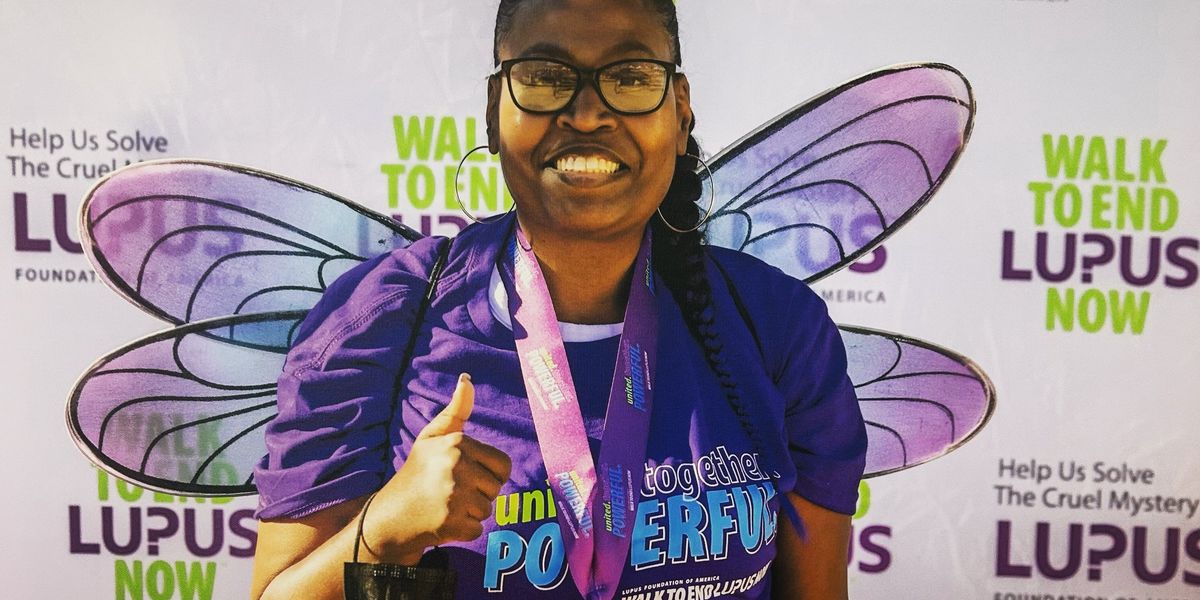As we look toward a healthier new year, Black Health Matters sat down with Anthony Anderson for a candid conversation about his personal journey with type 2 diabetes. While he is known for his acting, Anderson is using his voice to illuminate a critical health issue affecting more than 34 million Americans1—a condition he himself navigates: type 2 diabetes. While type 2 diabetes prevalence is widely acknowledged, the increased risk of chronic kidney disease (CKD) and major cardiovascular (CV) events like stroke, heart attack, and death2 remains less understood. This connection is particularly alarming within the Black community, where cardiovascular disease (CVD) is the leading cause of death for those facing both diabetes and CKD.3 To shed light, Anderson shares his personal experience and provides invaluable insights into the realities of living with type 2 diabetes and its associated risks.
Can you tell us about your experience with type 2 diabetes?
I was first diagnosed at age 31. I was familiar with the symptoms, such as excessive thirst and frequent bathroom trips,1 but one night, no matter how hard I tried to quench my thirst, I couldn’t. That’s when I knew something was going on. I went to see my doctor and after tests showed my glucose level was off the charts, I was diagnosed with type 2 diabetes. It was a reality check. Immediately I thought, okay, where did I go wrong? What did I do that led to this? What do I do now? At first, I went on medication and followed a plan, but looking back, I didn’t take the disease too seriously. I was the first person in my family to be diagnosed with type 2 diabetes, followed by my mother, Mama Doris, and, finally, my stepdad.
What did you do after you were diagnosed?
I made a lifestyle change, starting with being conscious about my health, getting fit, and listening to my care team. No matter what your lifestyle is like, prioritizing healthy eating and exercise takes a lot—but you can also start small and go from there. At first, I took the stairs instead of the elevator. I walked around my neighborhood and ate healthy foods, but also took the advice of my doctor to
enjoy things in moderation before phasing them out of my diet. Over time, it made a difference. I’ve learned there’s no secret to type 2 diabetes—you’re either managing it, or it’s hurting you.
How did you “get real” about your diabetes?
My diagnosis made me think back to my childhood. I remembered things about my stepdad’s life: the late-night bathroom breaks, the midday sleeping and being lethargic. I realized he had diabetes my entire life and had never been diagnosed. When we finally got him to the doctor, he was officially diagnosed with type 2 diabetes. We learned that after having it for 20 years, it was starting to ravage his body. Ultimately, we lost him to cardiovascular disease. It was a tragic loss and made me think, “I don’t want to do that to my family. I don’t want to become a statistic.” That’s when I got real about managing my type 2 diabetes.
What do you want people to know about type 2 diabetes and its associated risks?
Most importantly, learn what puts you at risk of getting type 2 diabetes. This includes family history, obesity, age, whether you live an active lifestyle or are part of a high-risk ethnic group, like me as a Black man.1
My doctor told me that having type 2 diabetes also puts you at increased risk of CKD and greater risk of experiencing a major CV event like stroke, heart attack, or death.4,5 Cardiovascular disease is the number one cause of death in adults living with type 2 diabetes.6 On top of that, 40% of adults with type 2 diabetes have CKD,7 yet 90% of adults with CKD don’t even know they have it.8
Since your diagnosis, what were you most surprised to learn about the impact of the disease?
As a Black man, I felt especially surprised to learn that certain ethnic groups are considered high-risk. CVD is the leading cause of death in Black Americans with both diabetes and chronic kidney disease.3 Black Americans are more than 3x as likely as White Americans to have kidney failure9 and 6x more likely than White Americans to get kidney failure from their high blood pressure.10 It’s scary stuff.
As someone living with type 2 diabetes, are there other long-term effects you have discussed with your doctor?
Yes. I’ve learned that, if not managed over time, high blood sugar can cause harm to your heart and kidneys.11 The longer you have type 2 diabetes, high blood pressure or heart disease, the more likely you are to have kidney damage.12 It’s all connected, but there are ways to lower risk and by educating yourself, and talking to your doctor, you’ve already taken the first step!
To anyone who has type 2 diabetes or knows someone who does, what would you tell them?
Get proactive and GET REAL! Learn the risks for yourself and share them with your family or community—someone might be pre-diabetic or going through the same things.
Living with type 2 diabetes and managing it successfully is a daily commitment that’s worth it. I always say, I’d rather live with this disease than die from it. It’s up to each of us to understand type 2 diabetes and associated risks, get the information we need and talk to our family members.
If you or someone you know is living with or at risk of type 2 diabetes, it’s time to get real about the link between type 2 diabetes, CKD and CVD. Talk to your healthcare professional about ways to manage your risks, including testing and treating early, managing your blood pressure and understanding genetic factors.
To learn more about type 2 diabetes, the increased risk of CKD and CVD, or to help you get real about your diabetes, visit www.GetRealAboutDiabetes.com. Anthony Anderson is a paid spokesperson of Novo Nordisk.

References:
1. Cleveland Clinic. Type 2 Diabetes. https://my.clevelandclinic.org/health/diseases/21501-type-2-diabetes. Accessed October 8, 2024.
2. American Diabetes Association. Cardiovascular disease and diabetes. https://diabetes.org/about-diabetes/complications/cardiovascular-disease. Accessed September 18, 2024.
3. Saab, K. R., Kendrick, J., Yracheta, J. M., Lanaspa, M. A., Pollard, M., & Johnson, R. J. (2015). New insights on the risk for cardiovascular disease in African Americans: the role of added sugars. Journal of the American Society of Nephrology: JASN, 26(2), 247–257. https://doi.org/10.1681/ASN.2014040393
4. de Boer IH, Rue TC, Hall YN, et al. Temporal trends in the prevalence of diabetic kidney disease in the United States. JAMA. 2011;305: 2532-2539.
5. Kidney Disease: Improving Global Outcomes (KDIGO) Diabetes Work Group. Kidney Int. 2020;98:S1–S115. Published May 15, 2020. Accessed June 24, 2024.
6. American Heart Association. Target: Type 2 diabetes. https://www.heart.org/en/professional/quality-improvement/target-type-2-diabetes/. Accessed September 18, 2024.
7. Feng, X. S., Farej, R., Dean, B. B., Xia, F., Gaiser, A., Kong, S. X., Elliott, J., Lindemann, S., & Singh, R. (2021). CKD Prevalence Among Patients With and Without Type 2 Diabetes: Regional Differences in the United States. Kidney medicine, 4(1), 100385. https://doi.org/10.1016/j.xkme.2021.09.003
8. Centers for Disease Control and Prevention. Chronic Kidney Disease in the United States, 2023. https://www.cdc.gov/kidney-disease/php/data-research/index.html. Accessed October 4, 2024.
9. National Kidney Foundation. Race, Ethnicity, & Kidney Disease. https://www.kidney.org/atoz/content/minorities-KD#:~:text=Black%20or%20African%20Americans%20are%20more%20than%203. Published January 7, 2016. 10. American Kidney Fund (AKF). Race/ethnicity – Kidney disease risk factors. www.kidneyfund.org. https://www.kidneyfund.org/all-about-kidneys/risk-factors/raceethnicity-kidney-disease-risk-factors. Published October 29, 2021.
11. National Kidney Foundation. Diabetes and kidney disease (stages 1-4). Accessed July 2, 2024. https://www.kidney.org/atoz/content/Diabetes-and-Kidney-Disease-Stages1-4
12. National Institute of Diabetes and Digestive and Kidney Diseases. Diabetic kidney disease. https://www.niddk.nih.gov/health-information/diabetes/overview/preventing-problems/diabetic-kidney-disease#:~:text=The%20A1C%20goal%20for%20many,check%20your%20blood%20glucose%20levels. Accessed June 24, 2024.



















 English (US) ·
English (US) ·